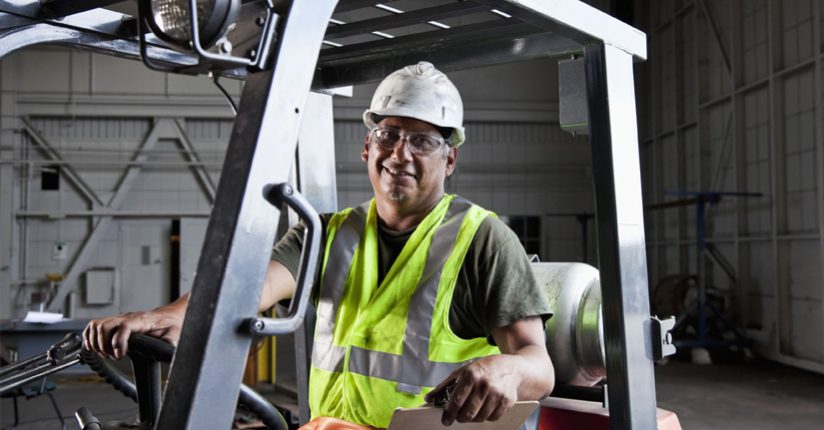Breaking the Habit – Operator Safety and Complacency
Experience. It’s what separates the rookie from the vet, boy from man, student from teacher… the padawan from the Jedi master. It is through our experiences that we are able to learn from our mistakes and acquire the knowledge and skills we need to do our jobs – whatever they may be.
It should come as no surprise, then, to hear that operating a forklift is no different. It’s a process that begins before you receive your very first safety certificate and continues throughout your career, constantly accumulating with regular practice and repetition. At some point, however, things that were once practiced with careful diligence become routine matters of habit. And therein, my friends, lies the crux of the issue. We become so accustomed to working in this environment that we stop thinking about what we’re doing and just do it. There’s no way of knowing when, but at some point many of the hazards and risks we once viewed as unacceptable slowly begin to fade into the background.
Now, before we go any further, it’s important to realize that this doesn’t occur purely out of willful ignorance, neglect or malicious intent. Rather, this is a natural developmental process that occurs as we are repeatedly exposed to certain situations and stimuli without any significant or adverse consequences. Since our brains are programmed to work efficiently, the process of sensory habituation reduces the subjective importance of these situations and stimuli, thereby allowing us to remain focused on whatever we are actively engaged in. From that point on, these instances are relegated to the margins of experience – having been deemed relatively unimportant.
While this wouldn’t be the worst assumption to make, at least under ideal operating conditions, it only takes one mistake, one moment of forgetfulness or hubris for everything to come crashing down (both literally and figuratively). Besides, how often does one encounter ideal operating conditions during the normal course of a work week? As a father and the head of a young family, I’d be lying if I told you that I was comfortable with relying on ideal operating conditions and luck to save me from serious injury, excessive property damage, crippling fines, and/or loss of life.
In an effort to avoid such incidences, the Canadian Standards Association (CSA) and the Occupational Health and Safety Act (OHSA) in Canada and the Occupational Safety and Health Administration (OSHA) in the U.S. – among others – have developed a series of standards, guidelines, and enforcement tactics to ensure that appropriate workplace practices are observed at all times. Both the CSA (Standard B335-94) and OSHA (29 CFR 1910.178(l)(1)) stipulate that forklift and lift truck operators must be 18 years of age or older, properly trained and certified in order to legally operate a forklift or lift truck.
To combat forgetfulness, complacency and the formation of unsafe habits, both the CSA and OSHA also require operators to regularly undergo the process of re-certification, as well as conduct field visits and inspections to gauge the competency of individual operators and workplace safety compliance. Under Canada’s Occupation Health and Safety Act, a “competent” forklift operator must be able to execute a variety of procedures in a “manner consistent with established competence standards” including a pre-operational safety and equipment check, general operation, the safe handling of loads and operational maintenance.
The onus is on the employer, however, to ensure that only competent and certified individuals operate lift equipment in the workplace. To avoid any unnecessary fines or compliance actions, it is essential that certification and training records be kept on each operator under their employment, as well as take all reasonable measures to comply with applicable safety standards and remove any imminent safety hazards.


This is why training is SOOOO important. Can’t overstate that fact enough